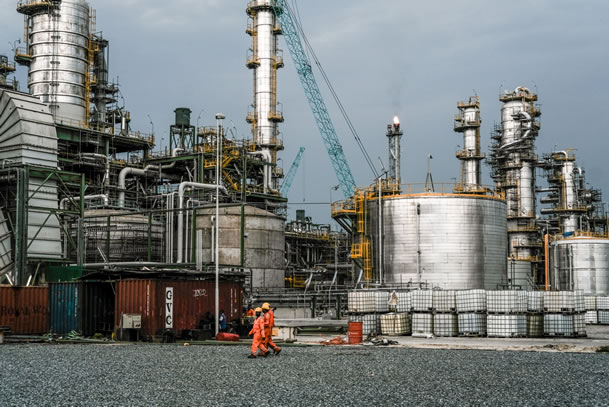Backbone Infrastructure Nigeria Limited (BINL) has concluded plans to construct and operate a 500,000 barrels per day (bpd) refinery, a development expected to significantly reduce Nigeria’s reliance on imported refined petroleum products.
The company is also planning to establish a Free Trade Zone in the Sunshine Free Trade Zone (FTZ) in the Ilaje Local Government Area of Ondo State, while the refinery will be set up at the Sunshine Industrial Park in Ogboti, Eruuna of the state.
The company stated that the refinery, a joint venture with the Ondo State Government represented by the Ondo State Development and Investment Promotion Agency (ONDIPA), would cost $15 billion, with phase one expected to be completed within 48 months.
The company also said it was exploring partnership with the Nigerian National Petroleum Company Limited (NNPCL) to facilitate the delivery of this ultra-modern crude oil refinery.
To fast-track the processes, BINL said it had scheduled a courtesy visit to the governor of Ondo State, Hon. Lucky Aiyedatiwa on July 14, 2025, following which the Ondo State Government represented by ONDIPA, and BINL would then formally execute memoranda of understanding on July 15, 2025 to kick off the delivery of these projects.
According to BINL, a multi-sectoral infrastructure development company with offices in Abuja, London and Zug, this project will be phased commencing with a 100,000 refinery.
Commenting on the development, BINL’s vice president for Corporate Services, Wale Adekola, said the BINL refinery would provide petroleum products for local consumption, feedstock for other local industries and petroleum products for the international market. The refinery project includes the construction of roads, storage tanks, loading bays, terminals and handling equipment. The scope of the Free Trade Zone Project includes the development of the required infrastructure and facilities for the effective operation and management of the Free Trade Zone.
The development framework includes a comprehensive and strict governance structure for the development of the local community in compliance with international standards and relevant laws.
According to Adekola, the projects will contribute significantly to reducing Nigeria’s trade deficit, conserving foreign exchange reserves, increasing government revenue and economic development.
At the state and local levels, the projects will create local jobs, stimulate the local economy through increased demand for goods and services.
The Corporate Social Responsibility (CSR) strategy includes community engagement programmes, such as education initiatives, local employment quotas, and infrastructure development for surrounding communities.
Engaging local stakeholders early to mitigate potential opposition to the project.





